By Timothy P. Williams, Senior Director of Formation and Leadership Development
Most Vincentians are aware that we should not use the word “client” to refer to the neighbors we assist, but this is more than a matter of preference for specific labels, or even euphemisms. The reason we don’t say “client” is not that the word itself is particularly offensive, but simply that it is the wrong word. We shouldn’t say client when we mean neighbor any more than we should say apple when we mean orange. They are different things.
You will search in vain to find the word “client” in the Rule, the Manual, or Holy Scripture. We are called by our Savior not to love our client, but to love our neighbor. He taught us that the neighbor is the one who acts with mercy. It is a mutual relationship based not on proximity, but on love. In a similar way, the Rule calls us to “establish relationships based on trust and friendship”, and to try to understand our neighbor “as we would a brother or sister.” [Rule, Part I, 1.9] All these words – neighbor, friend, brother, sister – are more than mere labels. They are the words Jesus used. They describe not only people, but the relationships between us, in which we share of ourselves for love alone. They are the right words for the people we serve, in whom, Christ reminds us, we serve Him.
The word client, by contrast, derives from a Latin word meaning “to bow before” and was used to describe a vassal, or a dependent. The word often still carries this ancient meaning but it has come also to be commonly used in the context of social welfare agencies. For both of these reasons, it is not the right word for the neighbors we serve, and more importantly, for the manner in which we are called to serve them.
First, the poor are not our dependents in any way. Instead, as Frédéric said, “we are equals in infirmity and – in virtue – often inferior to those we are visiting.” [1372, to the Assembly, 1838] How could it be otherwise? After all, in the poor we “see the suffering Christ.” [Rule, Part I, 1.8] Second, the Society is not a social welfare agency, or a service delivery organization in any sense of those terms. We are Catholic Christians, living our faith through personal service to all “those in need and the forgotten, the victims of exclusion or adversity.” [Rule, Part I, 1.5] We do this not so that they owe us something in return, but to welcome them into community, and to share the gifts we have received through God’s grace.
You may say it is only a word, and that’s true, but God’s eternal Word was made flesh, He was not made client. He is present to us in the poor, so let us resolve always to refer to those we serve as neighbors, brothers, sisters, and friends – not because we are instructed to do so, but because we truly believe that is who they are to us.
Contemplate
Do I truly see the poor as my neighbors, brothers, sisters, and friends?
Recommended Reading
Contemplación: La Palabra
Traducción de Sandra Joya
La mayoría de los vicentinos saben que no debemos usar la palabra «cliente» para referirnos a los vecinos a quienes ayudamos, pero esto es más que una simple preferencia por ciertas etiquetas o eufemismos. La razón por la que no decimos «cliente» no es que la palabra en sí sea particularmente ofensiva, sino simplemente que es la palabra incorrecta. No debemos decir «cliente» cuando queremos decir «vecino», del mismo modo que no decimos «manzana» cuando queremos decir «naranja». Son cosas diferentes.
Buscarán en vano la palabra «cliente» en la Regla, el Manual o las Sagradas Escrituras. Nuestro Salvador nos llama a amar a nuestro prójimo, no a nuestro cliente. Él nos enseñó que el prójimo es aquel que actúa con misericordia. Es una relación mutua basada no en la proximidad, sino en el amor. De manera similar, la Regla nos llama a «establecer relaciones basadas en la confianza y la amistad», y a intentar comprender a nuestro prójimo «como a un hermano o una hermana». [Regla, Parte I, 1.9] Todas estas palabras —vecino, amigo, hermano, hermana— son más que simples etiquetas. Son las palabras que usó Jesús. Describen no solo a las personas, sino también las relaciones entre nosotros, en las que compartimos lo que somos por puro amor. Son las palabras adecuadas para las personas a quienes servimos, en quienes, como nos recuerda Cristo, lo servimos a Él.
La palabra «cliente», en cambio, deriva de una palabra latina que significa «inclinarse ante» y se usaba para describir a un vasallo o dependiente. La palabra a menudo conserva este antiguo significado, pero también se ha llegado a usar comúnmente en el contexto de las agencias de bienestar social. Por ambas razones, no es la palabra adecuada para los vecinos a quienes servimos y, lo que es más importante, para la manera en que estamos llamados a servirles.
En primer lugar, los pobres no son nuestros dependientes de ninguna manera. Al contrario, como dijo Frédéric, «somos iguales en la fragilidad y, en virtud, a menudo inferiores a aquellos a quienes visitamos». [1372, a la Asamblea, 1838] ¿Cómo podría ser de otra manera? Después de todo, en los pobres «vemos a Cristo sufriente». [Regla, Parte I, 1.8] En segundo lugar, la Sociedad no es una agencia de bienestar social ni una organización de prestación de servicios en ningún sentido de estos términos. Somos cristianos católicos y vivimos nuestra fe a través del servicio personal a todos «los necesitados y olvidados, las víctimas de la exclusión o la adversidad». [Regla, Parte I, 1.5] Hacemos esto no para que nos deban algo a cambio, sino para acogerlos en nuestra comunidad y compartir los dones que hemos recibido por la gracia de Dios.
Podrán decir que es solo una palabra, y es cierto, pero la Palabra eterna de Dios se hizo carne, no se hizo cliente. Él está presente entre nosotros en los pobres, así que propongámonos referirnos siempre a quienes servimos como vecinos, hermanos, hermanas y amigos, no porque se nos haya ordenado, sino porque creemos de verdad que eso es lo que son para nosotros.
.
Contemplar
¿Veo realmente a los pobres como mis vecinos, hermanos, hermanas y amigos?



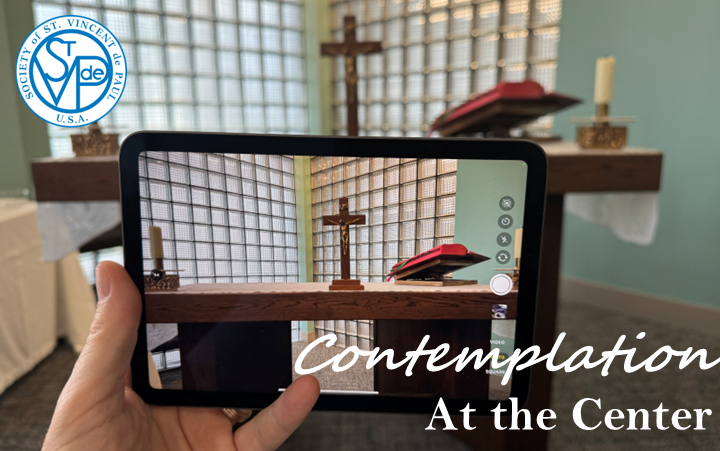
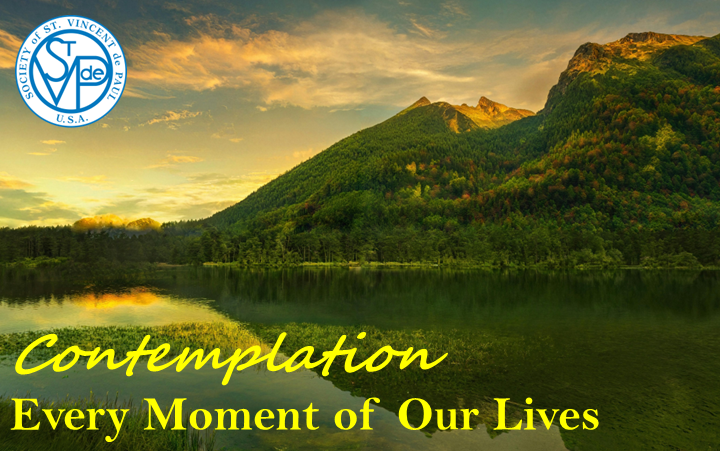
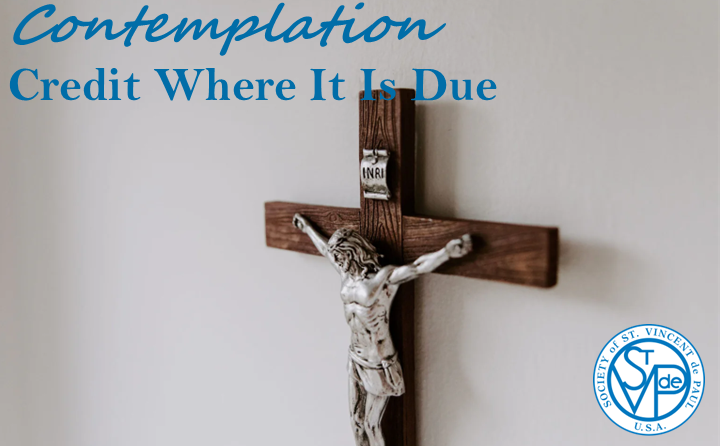

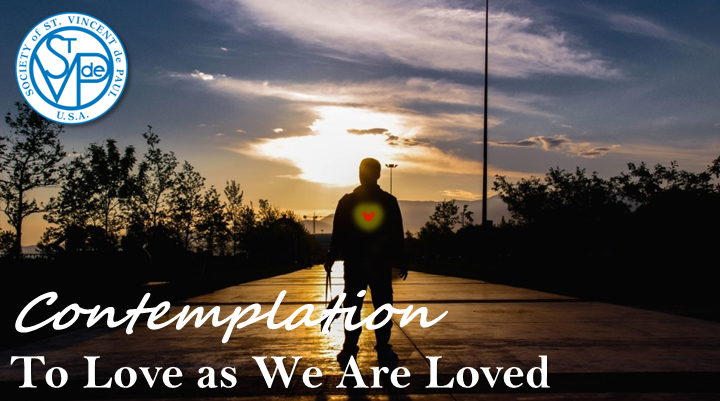

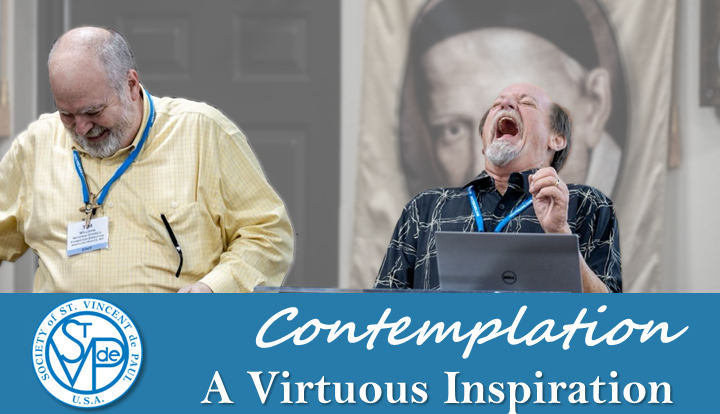
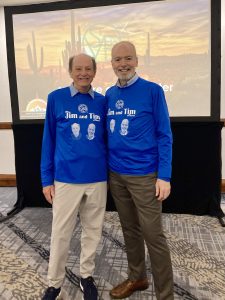 hed people’s hearts. I truly believe that nearly everybody who attended one of his talks left the room feeling…loved.
hed people’s hearts. I truly believe that nearly everybody who attended one of his talks left the room feeling…loved.